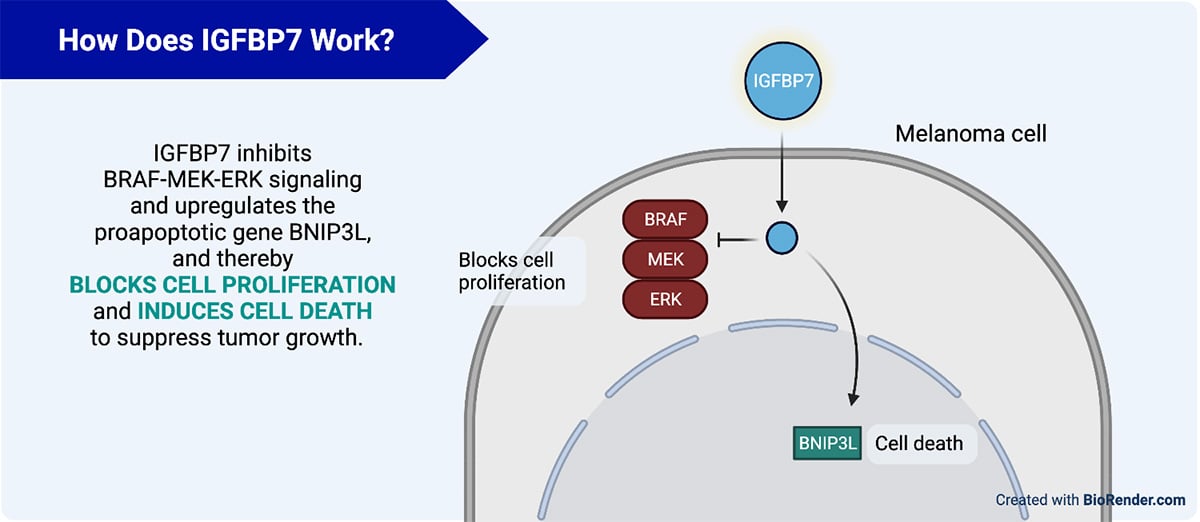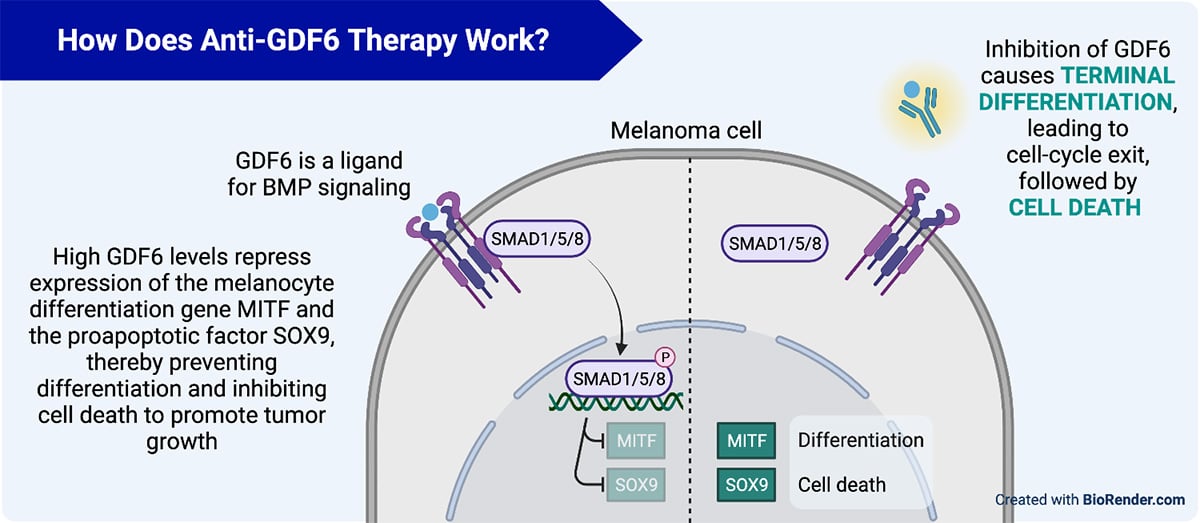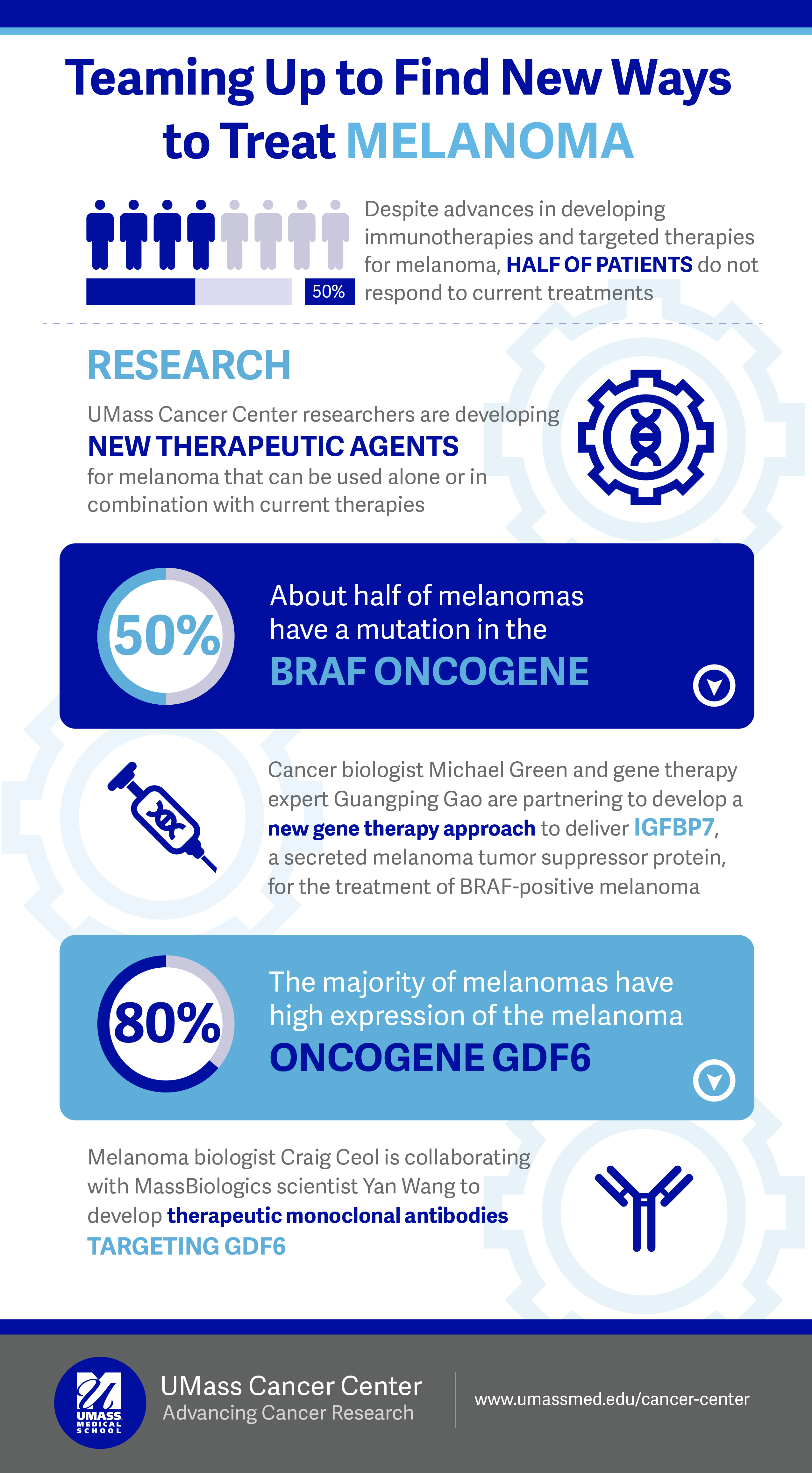Melanoma is a type of skin cancer caused by the uncontrolled growth of pigment-producing cells called melanocytes. It is the most aggressive and deadliest form of skin cancer.
Like other types of cancers, melanoma arises due to genetic mutations that impact cell growth, division or differentiation. For example, about half of all melanomas contain a mutation in the BRAF oncogene (typically BRAFV600E), which causes uncontrolled cell growth.
First-line treatments for melanoma include immunotherapies (immune checkpoint inhibitors) and targeted therapies (BRAF/MEK inhibitors). However, despite advances in treatments for melanoma, approximately half of patients do not respond to current therapies.
UMass Cancer Center researchers are developing new therapeutic agents for melanoma that can be used alone or in combination with current therapies.

Michael Green's group identified IGFBP7 (insulin-like growth factor binding protein 7) as a secreted tumor suppressor protein. They showed in mouse models that systemic administration of recombinant IGFBP7 can suppress tumor growth of human melanoma xenografts expressing oncogenic BRAF.
More recently, in collaboration with Guangping Gao, they have shown that IGFBP7 can also be effectively delivered into mice using an adeno-associated virus (AAV) vector. Intramuscular injection of an AAV-IGFBP7 vector results in the expression and secretion of IGFBP7 and markedly reduces growth of human melanoma xenografts.
Their results indicate that AAV delivery of IGFBP7 is a new and promising anti-cancer treatment.

Using zebrafish as a model system to study melanoma, Craig Ceol's lab used a comparative genomics approach to identify GDF6 (growth differentiation factor 6) as a gene recurrently amplified in melanoma. They showed that GDF6 is a novel melanoma oncoprotein that suppresses differentiation and cell death. In partnership with pathologist April Deng, they found that GDF6 is expressed at high levels in ~80% of melanomas, but is not expressed in normal melanocytes or in adult tissues.
These results indicate that GDF6 is an attractive therapeutic target for the treatment of the vast majority of melanomas with little chance for on-target toxicity.

Dr. Ceol's group is testing whether inhibition of GDF6 is an effective therapeutic intervention for melanoma. They have collaborated with Yan Wang, Deputy Director of Product Discovery at MassBiologics, to generate therapeutic monoclonal antibodies targeting GDF6. Dr. Ceol is testing the efficacy of these anti-GDF6 antibodies in mouse xenograft models alone and in combination with currently used therapies.

